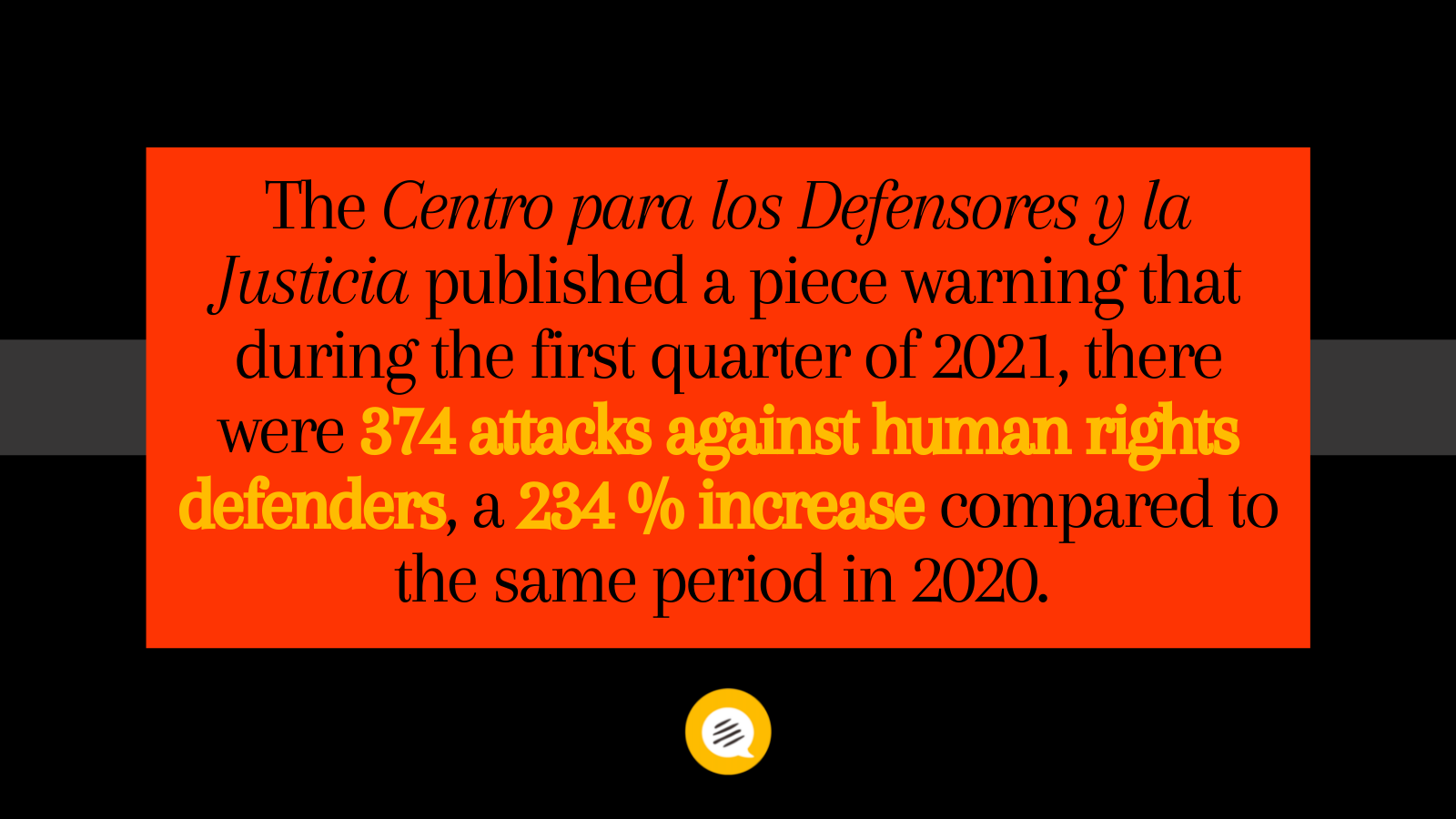Fedecámaras Questions Sanctions Against Chavismo
Fedecámaras president Ricardo Cusanno questioned sanctions against chavismo, asking affiliates to commit to this new line of action. During the first quarter of 2021, there were 374 attacks against human rights defenders, a 234 % increase compared to the same period in 2020.


- The same day the World Bank’s Doing Business index determined Venezuela is the worst Latin American country and the second-worst in the world to invest in, the most important business chamber invited Delcy Rodríguez to their 77th annual assembly.
- Fedecámaras president Ricardo Cusanno questioned sanctions against chavismo, asking affiliates to commit to this new line of action “without paying attention to radicals attacking or if the international community doesn’t understand.” Cusanno also said: “They recommended I say that businessmen don’t believe in the government (…) I ask the government to believe in businessmen.”
- Political parties that are running in the November elections have to submit which of their authorities will be authorized to present candidates before July 31st, said the National Electoral Council.
- Voluntad Popular deputy Sergio Vergara requested expelling Daniel Ceballos, after he announced he wanted to run for Táchira governor. He said that Ceballos contradicted the party lines and that he intends to “legitimate actions that he’s planning alongside organizations that have been kidnapped by the dictatorship.”
- Táchira governor Laidy Gómez asked CNE board members Roberto Picón and Enrique Márquez to hold primaries in the state.
- The Delegate Commission of the National Assembly approved an agreement rejecting implementing the judicial reform of the criminal code that’s being developed by Cilia Flores y Diosdado Cabello. They also denounced the destruction, lack of budget and low wages in Venezuelan universities. Deputy Gaby Arellano denounced that the criminal gang “El Tren de Aragua” controls illegal pathways or trochas in between Colombia and Ecuador for migrant trafficking.
- Juan Guaidó reiterated that the caretaker government doesn’t handle the humanitarian aid funds. About the 500 million dollar USAID report, he explained it was part of the 2017-2019 period and that U.S. Ambassador to Venezuela James Story himself had said that “the caretaker government doesn’t control the funds of humanitarian aid directly.”
- Prepara Familia denounced that the lack of supplies for patients at the JM de los Ríos Hospital continues. The NGO reminded the public that “the State is obligated to provide supplies and medicines.”
- The CICPC arrested four people who are allegedly tied to El Koki’s gang, which controls the Cota 905: Carla Díaz (a.k.a. La Pelúa), Óscar Durán, Jender Díaz and another unidentified citizen. In addition, a.k.a. “El Peque” was killed in the Cota 905.
- Professor José Manuel Puente said that oil income has been better than in 2020, but that hyperinflation is projected to be between 2000 and 2600% this year.
- Puente said that “Venezuela requires billions of dollars to stabilize its economy (…) that can only be given by the IMF, the World Bank and the international community.”
- Luigi Pisella, the new president of Conindustria, asked the regime to give the companies expropriated by chavismo back to their former owners.
- Students protested on the Francisco Fajardo highway to reject attacks on Venezuelan, Nicaraguan and Cuban dissidents. They condemned the regime’s persecution of opposition parties.
- A group of 30 Venezuelan NGOs rejected the repression in Cuba and Nicaragua against human rights activists, press workers and society in general.
- The U.S. Treasury Department extended the license that prohibits PDVSA 2020 bondholders from acting against CITGO.
- Former Spanish Ambassador to Venezuela (2004-2007) Raúl Morodo, his wife and son will testify before the court again: they have to explain to the anti-corruption prosecutor why they charged PDVSA $5.3 million for contracts for “legal advice” from 2012 to 2015.
Caracas Chronicles is 100% reader-supported.
We’ve been able to hang on for 22 years in one of the craziest media landscapes in the world. We’ve seen different media outlets in Venezuela (and abroad) closing shop, something we’re looking to avoid at all costs. Your collaboration goes a long way in helping us weather the storm.
Donate





